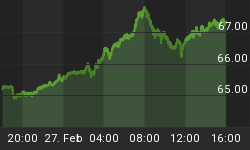
In registration with the US Securities & Exchange Commission will be the first "pure" currency play, as Rydex Investments is the Euro Currency Trust. If approved, it will trade under the symbol FXE.
FXE will be structured as a grantor trust. The creation units will consist of 100,000 shares, each representing €40, for a total of €4 million. That would put the value of each individual share at $50, based on a conversion rate of EUR=$1.25.
According to a report published by Exchange Traded Fund Report, "Rydex ETF represents just a first step, and a baby-step at that, into the currency markets. It is just one currency, although a major one, and it is unclear whether shares will be available for shorting by retail investors who believe that the Euro will decline against the US dollar. The registration statement makes no mention of the possibility of an inverse Euro ETF, which would address that issue."
That's a big deal since retail investors have had a difficult time shorting most ETFs should they so desire. (Please review, "Retail Investors Get the Short Shaft") And, what is the purpose of having FXE in your portfolio if you can only be "long" or not a participant? Doesn't it exist for hedging non-dollar denominated assets? Will that not be a benefit available to retail investors? Or, is it just being issued so that institutional investors can play while retail is excluded again?
Sure, I can hear the issuer, sponsor and exchange all saying the same thing: "It's a stock lending problem of the retail investors' brokerage company". Right. But, you won't find any of these insiders assisting retail in realizing this feature. Why? Because they don't have a monetary incentive to assist retail since they only earn more fee income when new shares are issued, not from shares already in circulation. They'll just issue the ETF and walk away. Or, since the AMEX is now commencing options trading for various new ETFs, they'll steer retail investors to those markets which are more lucrative to them and riskier for investors.
To be fair, Rydex is a firm that has been a leader in issuing "inverse" index-based mutual funds (these funds profit by declining index prices). Given that, perhaps they'll be more sensitive to that need and want to profit by sponsoring an "inverse" series. Until there is at least mention of that intention, it's clear that retail investors will be left watching the big boys enjoy and profit while they get the short end of the stick.















